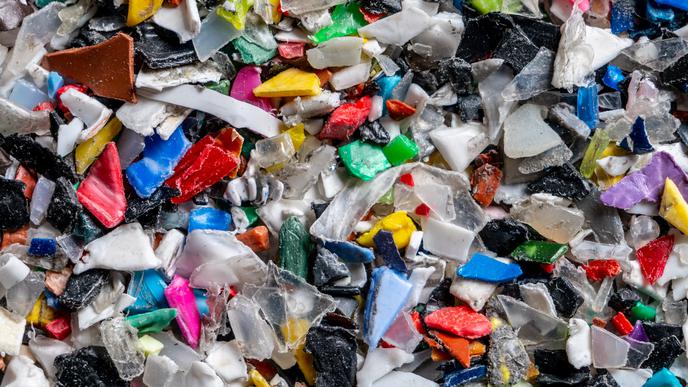
Short description of the project
Improving energy and resource efficiency in the use of plastics and the transformation to Chemistry 4.0 - this is what “Waste4Future” is all about. The project is creating new opportunities for recycling in order to obtain high-quality starting materials from plastic waste.
Project goals
The resulting solutions should make it possible to recycle the carbon contained in the plastic. Instead of contributing to global warming in the form of CO2 or polluting the environment with plastic waste, carbon is available as a “green” resource for the chemical industry. “Waste4Future” thus paves the way for a carbon circular economy in which valuable new basic molecules are extracted from plastic waste and emissions are largely avoided: Today's waste becomes tomorrow's resource, thus at the same time reducing industry's dependence on imported primary carbon resources such as oil and natural gas.
The project pursues the following objectives in three subprojects:
- Development of a holistic, entropy-based assessment model that reorganizes the recycling chain, which until now has been process-driven, into a material-driven chain. The degree of a system's disorder (entropy) is to be recorded by means of new sensors. From a large, highly disordered overall stream, new sorting processes create individual sub-streams that are less disordered. Depending on their composition, the model is used to decide which recycling route is technically, ecologically and economically the most sensible for this specific waste volume.
- Development of new solutions for mechanical recycling (mechanical recycling, solvent-based purification and fractionation).
- Development of new solutions for chemical recycling (solvolysis, pyrolysis and gasification).
The scope of the lighthouse project also includes the economic evaluation of a new recycling process chain.
Fraunhofer IOSB's contribution
In the area of automatic visual inspection, Fraunhofer IOSB has been developing systems and equipment in the field of sensor-based sorting for various tasks from industry for 20 years, e.g. for sorting dried foodstuffs, heat-resistant and lead-containing glass, plastic and rubber granulates, and minerals. The basis for this is the development of optimized material feeding components, the selection of optimal sensor solutions for image acquisition in different spectral ranges and the development of hardware-supported real-time algorithms for image processing and evaluation. One focus of the research here is on insufficiently resolved sorting issues.
The data generated during inspection, sorting and other stages of the recycling process are mapped onto digital twins for the materials processed and the process steps carried out. This allows an optimal recycling path to be determined for a material fraction to be recycled, and in doing so, access to a constantly growing database. The digital twins of materials and processes are realized with the FA³ST Service. The FA³ST Service of Fraunhofer IOSB implements the specification of the asset administration shell, which is published and maintained by the Plattform Industrie 4.0.
 Fraunhofer Institute of Optronics, System Technologies and Image Exploitation IOSB
Fraunhofer Institute of Optronics, System Technologies and Image Exploitation IOSB 